All the taste, none of the waste
There are so many wineries all over the world that are taking big steps toward sustainability, but how do you determine which ones to pick? Here is a running list of my favorite wineries who go above and beyond to minimize waste, and operate sustainably. All of these are certified by at least one third party agency.
Note: If you have any winery suggestions, leave a comment or E-mail me and I'd be happy to do some research and add them to the list if they meet my standards!
california
- Fetzer
- I have a whole post dedicated to Fetzer here, because they are honestly just the best in the business when it comes to sustainable winemaking and I couldn't fit everything I wanted to say in this little summary.
- Certifications: B-Corp, CarbonNeutral®, TRUE Zero Waste (first wine company in the world in 2014), CCOF Organic (California Certified Organic Farmers)
- Sustainable Farming: Applies regenerative and sustainable agriculture practices, including employing chickens and sheep for pest and weed management. This eliminates the need for fossil fuel based synthetic chemicals, helping to reduce the overall carbon footprint. Fetzer is also transitioning their outside grape suppliers into being certified sustainable by 2020.
- Energy: In 1999 Fetzer became the first winery in California to operate on 100% clean energy. In 2006 they covered 75,000 square feet of rooftop with solar panels, creating 80% of the energy needed to run our bottling facility.
- Winemaking:
- Materials and Waste Management: In 2014 Fetzer became the first wine company to receive a TRUE Zero Waste certification and has set a new goal of 99.9% waste diversion rate by 2020.
- Benziger Family Winery
- Certifications: Certified Sustainable (SCS), CCOF Organic (California Certified Organic Farmers), Demeter-certified Biodynamic
- Energy: The use of animals limits the amount of machinery needed to go through the farm, and therefore the fuel costs of such activities.
- Materials and Waste Management: Uses mostly natural corks
- Sustainable Farming: Benzinger has fully harnessed the sustainable and beneficial power of farm animals in their growing process. Sheep replace the need for mowing, disking, and spraying herbicides; they aerate the soil while continuously depositing nutrient-rich fertilizer throughout the vineyard. Their small herd of Scottish Highlander cattle provide organic manure.
Birds are important to the vineyard because they naturally prey on smaller animals that can be detrimental to the vines. They also help carry seeds and pollinate our garden. See this video on why happy birds live at Benziger Family Winery.
Benzinger also keeps an insectory (plot of
flowering plants designed to attract and harbor beneficial insects). Benzinger uses their insectory to grow fruits and vegetable for local resauraunts while attracting beneficial bugs that aid in vineyard health. They also grow Valerian, Camomile and other herbs and teas that can be used in their Biodynamic preparations.
Oregon
- Stoller Family Estate
- Certifications: B-Corp, LEED® Gold, LIVE (Low Input Viticulture and Enology), The Carbon Neutral Challenge (CNC), Salmon Safe
- Sustainable Farming:
- Energy: Stoller generates more than double the winery’s electrical needs, so the estate is energy neutral. They alos employ natural ventilation and lighting, efficient heating and cooling systems, and an efficient building envelope.
- Winemaking: Stoller ueses a blend of traditional gravity flow winemaking with energy efficient systems. These work to preserve the quality of the grapes and reduce negative environmental impact. For example, their cellars for barrel aging are below grade, which uses the natural temperature-stabilizing capacity of the earth.
- Materials and Waste Management: 96% percent of their construction waste was recycled, diverting recovered resources from the landfill back to the manufacturing process and reusable materials to appropriate sites. All steel and aluminum components, concrete with fly ash, gypsum wall board, and countertops were all made with a high percentage of recycled materials. Large wood beams, columns, porches, and stairs were made from reclaimed wood.
- Sokol Blosser Winery
- Certifications: B-Corp, LEED® (Leadership in Energy and Environmental Design), Certified Organic (USDA), Prescott Western Bluebird Recovery Project Member
- Sustainable Farming: Sokol plants a variety of flowering plants like lavender, yarrow, rudbeckia, and Russian sage to help provide habitats for beneficial insects. They maintained about 15 birdhouses on their property and released two barn owls through the Audubon Society of Portland to help sustainably control rodents.
- Energy: Sokol uses 50% biodiesel in their farm tractors and trucks, have a 25kW solar panel system, and purchase renewable wind power from PGE. They also track their water usage with the goal of a 5% reduction over the next year.
- Winemaking: no-waste, energy efficient crossflow filter on our white wines; underground barrel cellar, built to US Green Building Council standards
- Materials and Waste Management: Sokol implements an extensive recycling program, recycling everything from office paper to pallet shrink wrap. They use unbleached paper products for labels, wine boxes and gift bags whenever possible.
- Patton Valley Vineyard
- Certifications: B-Corp, Oregon Certified Sustainable, Salmon-Safe, LIVE (Low Input Viticulture and Enology)
- Sustainable Farming: Patton forgoes pesticides in favor of managing weeds using mechanical cultivation. They also compost grape stems and skins from their fermentation processes and use that compost for their growing vines.
- When they are used, fungicide sprays are typically made from natural, low-impact organic materials like sulfur, whey and mineral oil.
- Energy: Biodiesel tractor fuel is used in an effort to reduce fossil fuel consumption.
- Materials and Waste Management: Most of their wine is bottled in lightweight, domestically produced “eco-glass” bottles. The resources necessary to make these bottles are substantially fewer, and the lighter package weights require less fuel to transport.
Continued list featuring international wines to come!





